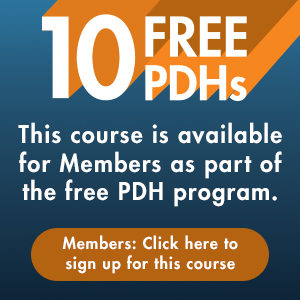
View Important Policies and System Requirements for this course.
Sponsored by ASCE Continuing Education and the Structural Engineering Institute.
View all webinars related to Alexander Newman.
INSTRUCTOR: Alexander Newman, P.E., F.ASCE
Course Length: 90 minutes
Purpose and Background
Failure investigations are fraught with numerous ethical pitfalls. The challenges start with the dual ethical obligations of forensic investigators. On the one hand, the investigators owe a duty to the client who retains them; on the other, they are obligated to protect safety, health, and welfare of the public and to tell the truth to the court. But what if there is a conflict between the two sets of obligations? What if the client does not have a time or budget for a comprehensive investigation? What if the engineer is pressed “to be a team player” and say what the client wants to hear? What if the scope of the investigation is unclear, but the client insists on receiving a fixed-fee proposal? What if the investigation involves the issues on the periphery of the engineer’s experience? What exactly is a conflict of interest, and who decides whether it is present? These and many other practical questions demand answers. Without attempting to cover every imaginable ethical pitfall in conducting a failure investigation, this webinar discusses the most common ones. Steering clear of such pitfalls will help the attendees preserve and improve their professional reputations and grow their practices.
Primary Discussion Topics
- The role of forensic engineers in the legal process
- Ethical pitfalls in dealing with various types of clients
- Resolving common ethical dilemmas in failure investigation and expert testimony
Learning Outcomes
- Learn about the difference between failure investigation and expert testimony
- Become familiar with the typical goals of various types of clients
- Know how to avoid an appearance of bias
- Find out when to say no to the client
Webinar Benefits
- Understand the different roles that forensic engineers can play in the legal process
- Discover the relevance of the ASCE Code of Ethics to failure investigations
- Know the general procedure for addressing potential conflicts of interest
- Learn about dealing with the client who has an agenda that the forensic engineer does not fully agree with
- Examine the circumstances when the safety of the public might conflict with a confidentiality obligation to the client
Students' achievement of the learning outcomes will be assessed via a short post-assessment (true-false, multiple choice and fill in the blank questions).
Intended Audience
- Structural engineers
- Civil engineers
- Anyone involved in failure investigations
Webinar Outline
- Introduction: What are ethics
- The legal process and the role of forensic engineers in it
- Ethical pitfalls in dealing with various types of clients
- Ethical issues to consider before accepting an assignment
- Avoiding conflicts of interest and appearance of bias
- Resolving other common ethical dilemmas
- Conclusion, final Q&A
How to Earn your CEUs/PDHs and Receive Your Certificate of Completion
To receive your certificate of completion, you will need to complete a short on-line post-test and receive a passing score of 70% or higher within 1 year of purchasing the course.
How do I convert CEUs to PDHs?
1.0 CEU = 10 PDHs [Example: 0.1 CEU = 1 PDH]
